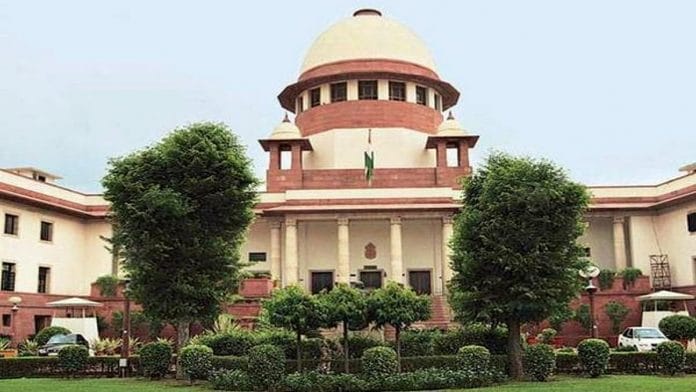New Delhi: The Supreme Court Friday questioned the Uttar Pradesh government over the notices to recover losses caused by damage to public properties that were issued against anti-CAA protestors in December 2019, and later acted upon. The court observed that the notices contravened its two rulings that barred an Additional District Magistrate (ADM) to adjudicate such proceedings.
A bench of justices D.Y. Chandrachud and Surya Kant asked UP Government counsel, additional advocate general Garima Parshad, to withdraw the notices, failing which the court will quash them for being in violation of the law.
According to Parshad 106 FIRs were registered against 833 rioters in the state following large-scale anti-CAA protests, leading to 274 recovery notices against those who were alleged to be part of the mob. Over 400 policemen were injured during the agitation, she said.
Recovery orders were passed on 236 (of the 274) notices issued, while 38 cases were shut. All these proceedings were held before a claim tribunal that was then headed by an ADM. UP now has a new law, Parshad told the court, which was enacted in 2020 and according to which an additional district judge heads such claim tribunals.
But the court reminded Parshad that the proceedings related to the anti-CAA protests were held prior to the new law was enforced, which did not conform to two SC rulings passed in 2009 and 2018, both of which said that judicial officers should be appointed in claim tribunals.
By not following the top court’s orders, the state had acted “like a complainant, adjudicator and prosecutor” in the proceedings to attach the properties of the accused.
Also read: Which court should execute decree by foreign court? It took Indian judiciary 16 yrs to decide
‘Listen or be ready to face the consequences’
“Withdraw the proceedings or we will quash it for being in violation of the law laid down by this court,” the bench said, while it was hearing a plea filed by petitioner Parwaiz Arif Titu, seeking quashing of notices sent to alleged protestors.
Titu has alleged the notices were sent in an “arbitrary manner” against a person, who had died six years ago at the age of 94 and also to several others including two people who are aged above 90.
The court opined the state cannot subvert the due process of law, granting last opportunity to UP. It fixed 18 February to hear the matter again.
“We will tell you how the Supreme Court judgements need to be followed,” the bench said, telling Parshad that 236 notices in a big state like UP is not a big thing.
“You can withdraw it with a stroke of a pen. If you are not going to listen, then be ready to face the consequences,” the court said.
Parshad defended the proceedings, which, she argued, were conducted according to a 2011 government order on the functioning of claim tribunals. This argument was, however, rejected, with the bench quoting an Allahabad HC order of 2011 that disapproved the order.
“You had promised to bring in a new statute, but it took you 8-9 years,” the court said.
Parshad urged the court not to entertain Titu’s plea, since several accused against whom recovery notices were issued have approached the Allahabad High Court, where long-drawn hearings have taken place.
Moreover, she contended, proceedings related to riots that have taken place since 2011 are also pending before the tribunals. If the court entertains the present plea, Parshad said, others too will approach the court for relief.
But the bench clarified it was not concerned with other proceedings and only with those related to anti-CAA protests. “You cannot bypass our orders, the proceedings were contrary to law laid down by this court,” the bench added.
(Edited by Poulomi Banerjee)
Also read: SC orders reinstatement of MP ex-woman judge who resigned in 2014 over ‘sexual harassment’






